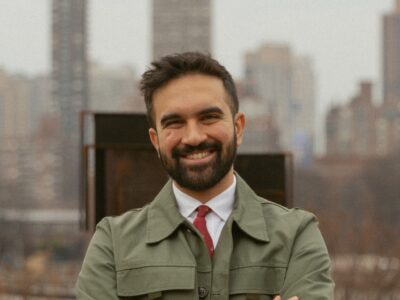Researchers from across Columbia in early May at a faculty seminar entitled Climate Change, Public Po licy, and Development. The event was jointly organized by the Institute of Latin American Studies (ILAS) and the International Research Institute for Climate and Society (IRI). The purpose of the meeting was to explore ways in which Columbia University could help fill the gaps between climate-change research and policy in Latin America.
licy, and Development. The event was jointly organized by the Institute of Latin American Studies (ILAS) and the International Research Institute for Climate and Society (IRI). The purpose of the meeting was to explore ways in which Columbia University could help fill the gaps between climate-change research and policy in Latin America.
According to Walter Baethgen, the director of IRI’s Program on Latin America and the Caribbean, the issue is that knowledge about climate change is not making its way into national-level policies in the region.
“It’s there in the discourse, but in practice the connection between knowledge and policy is not being made,” says Baethgen. “And at the IRI, developing ways to effectively incorporate climate risks into development is an obsession.”
Friday’s seminar included experts from a number of fields, and the discussion was predictably wide-ranging. Before it ended, however, participants’ interest had coalesced around the idea of convening researchers and policymakers to discuss issues at the nexus of climate and water-resources management in Latin America.
“Water touches a lot of different things – urbanization, health, hydroelectricity – which makes it important to explore,” says Jenik Radon, adjunct professor at the School for Public and International Affairs. “It has tentacles everywhere.”
Between ILAS, the Climate Center, the Water Center, the Center for Environmental Research and Education, SIPA, and the IRI, Columbia has access to vast intellectual resources to inform a high-level discussion on water and climate in Latin America. The group also hopes to draw researchers from within Latin America and around the world to participate in the discussion.
But things won’t stop there, hopes IRI’s International Development Officer, Haresh Bhojwani. He wants to open the results of such a meeting to a broader audience and is eager to have the group present the outcome of its discussions at this year’s UN climate conference in Copenhagen.
“The upcoming negotiations in Copenhagen are an opportunity as much as a responsibility to ensure that ideas informed by good research are represented in international policy,” Bhojwani says. “This group can play a role in that.”
Of course, recent discussions with ILAS mark just one of IRI’s efforts to use good research to influence discussions in Copenhagen. Similar initiatives include a recent collaboration with Columbia’s Masters Program in Climate and Society and the International Federation of the Red Cross Red Crescent. This initiative is designed to document the needs of the humanitarian community in responding to climate-related disasters and to inform discussions about policy and financing.
The IRI is also working with the Global Humanitarian Forum to produce a document on insurance for development which it hopes will serve as a go-to resource for negotiators.




Walter’s quote regarding the disconnect b/t knowledge and policy reminds of what he said a few weeks ago at the Climate Center launch:
I’m paraphrasing here, but it was something along the lines of “The probability of a year behaving like an average year is zero. Yet our planning is often based on averages, and we pay little regard to the variability that occurs around those averages.”